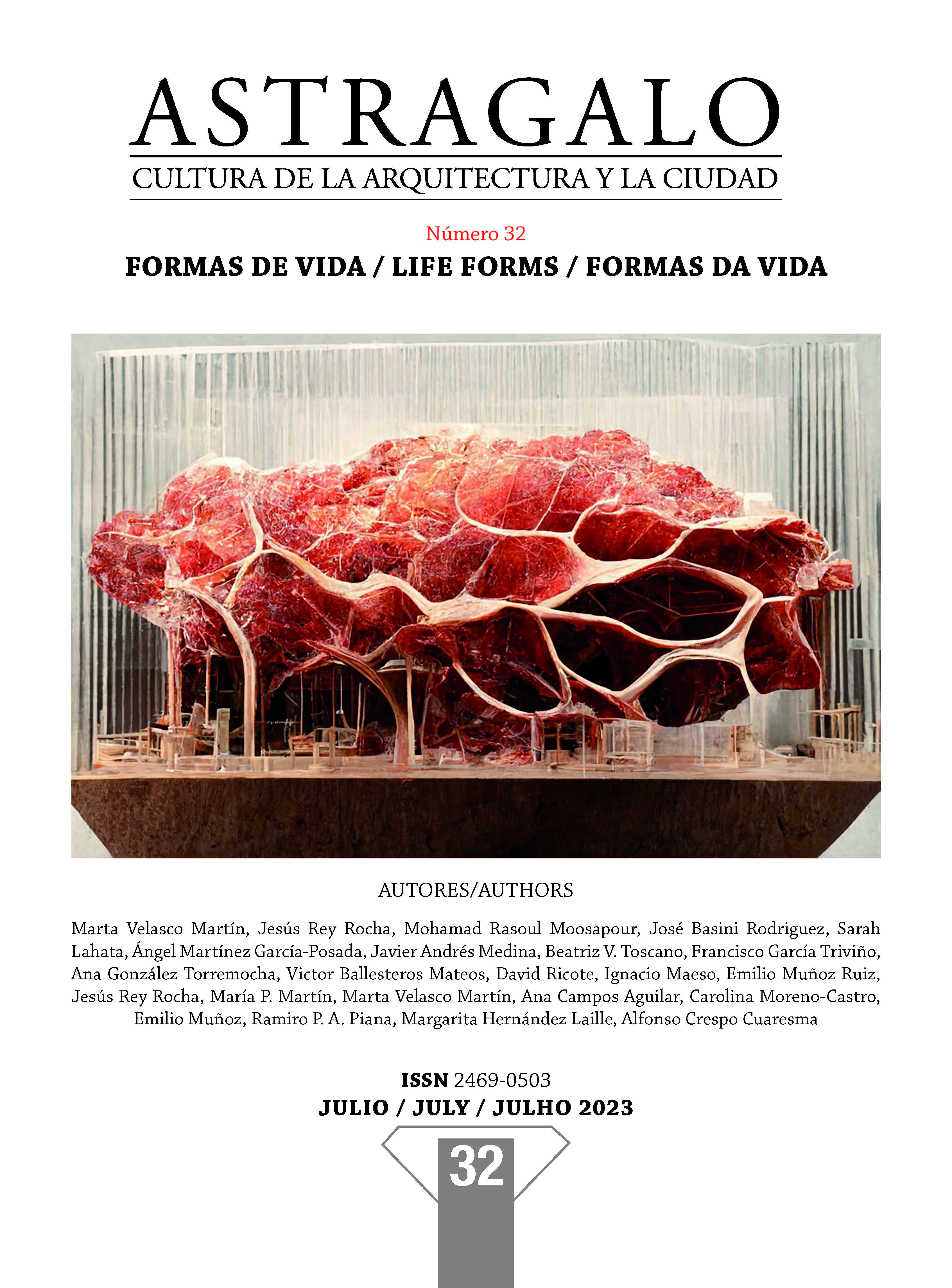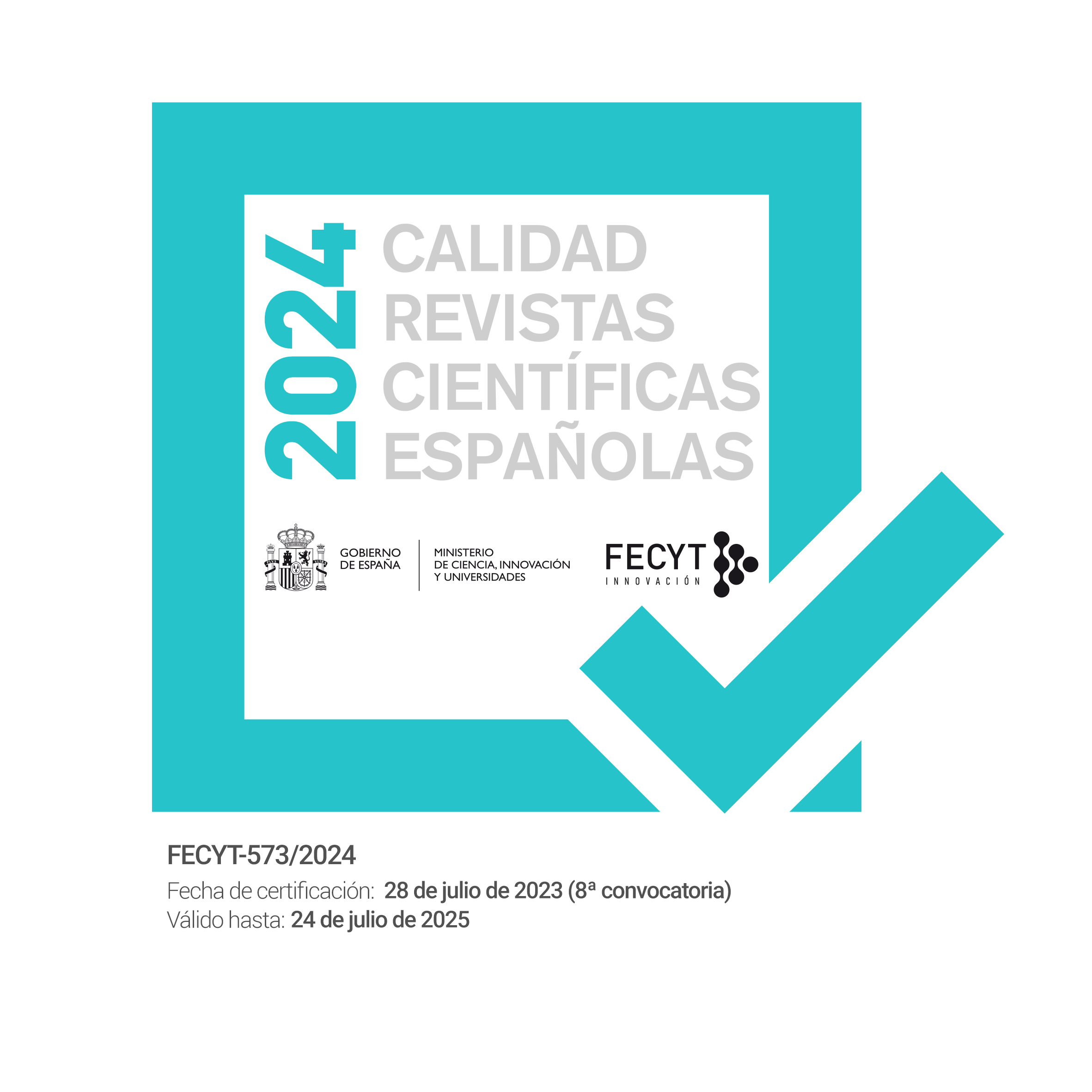Life forms or ways of living and their role in evolution.
An interdisciplinary reflection in a context of enormous complexity
DOI:
https://doi.org/10.12795/astragalo.2023.i32.10Keywords:
origin of life, evolution, life forms, humanistic studies, social studiesAbstract
This article is born with an evolutionary perspective that covers aspects of life such as origin, diversity and co-evolution throughout all the kingdoms or domains that taxonomically group the living beings of the planet.
It has been approached through a new way of dealing with humanistic and social studies: a multi- and interdisciplinary perspective and an approach to experimental studies. The aim is to carry out research in order to have an appropriate methodology, to analyse the results in the most integrated and cooperative way possible, to explore new questions that arise from the research itself, to have a body of knowledge that allows us to confirm and advance conclusions and even to formulate new hypotheses.
The books by Lane and McGowan that are glossed, with the aim of creating intellectual heritage, have been decisive. Contrasting ideas and concepts tested in previous works, such as the importance of education, of knowledge, of a more integrated and current vision of the theory of evolution, of the sociability environment, of intellectual evolutionary convergence and interethics, and the concept of anthropic paradoxes, have been the basis for reaching conclusions such as that the introduction of physical limits (bioenergetics) allows to explain the arrest of evolution, the idea that each group of living beings has its own world in which they have experienced evolution, that symbiosis was essential for eukaryotic cells and that their metabolism and relationship to size and reproductive strategies have contributed to the evolution of animals.
Downloads
References
Lane, Nick. 2016. La Cuestión Vital. ¿Por qué la vida es como es?. Barcelona: Ariel. Primera edición en inglés, 2015, The Vital Question: Why is life the way it is? London: Profile Books.
McGowan, Christopher. 1994. Diatoms to Dinosaurs. USA: Island Press.
Muñoz, Emilio. 2015. “Éticas aplicadas”. Seminario internacional Economía y Valores. Fundación Ramón Areces. 19 de febrero. https://es.slideshare.net/FundacionAreces/emilio-muoz-ticas-aplicadas.
Muñoz, Emilio. 2020. El reto de reflexionar: Entorno de sociabilidad y evolución. http://cchs.csic.es/es/article/nuevo-episodio-reto-reflexionar-evolucion-entornos-sociabilidad-emilio-munoz-ifs.
Muñoz Ruiz, Emilio y Rey Rocha, Jesús. 2022a. “Una «paradoja antrópica»: la mejora de la vida y la crisis ambiental”. Ethic, 6 de abril. https://ethic.es/2022/04/una-paradoja-antropica-la-contradiccion-entre-la-mejora-de-la-vida-y-la-crisis-ambiental/.
Muñoz Ruiz, Emilio y Rey Rocha, Jesús (Coord.). 2022b. Paradojas antrópicas. Conversaciones desde un mundo desordenado. Seminario online, ciclo ‘Paradojas antrópicas’. Capítulo Español del Club de Roma. 19 de mayo. https://clubderoma.es/actividad/actividad-cecor-20220519-1830/; https://youtu.be/kNuur0GG5zM
Rey Rocha, Jesús y Muñoz Ruiz, Emilio (Coord.) 2022a. Encuentro: Retos, impactos e implicaciones sociales de la investigación sobre la vida. Pensemos, y reflexionemos juntos para actuar. Organiza: Red Life.HUB CSIC, Instituto de Filosofía (IFS,CSIC), Centro Andaluz de Biología del Desarrollo (CABD, CSIC), Casa de la Ciencia de Sevilla. 24-25 mayo 2022. https://lifehub.csic.es/evento/encuentro-retos-impactos-e-implicaciones-sociales-de-la-investigacion-sobre-la-vida-pensemos-y-reflexionemos-juntos-para-actuar/; http://ifs.csic.es/es/event/encuentro-retos-impactos-e-implicaciones-sociales-investigacion-vida-pensemos-reflexiones; http://ifs.csic.es/es/article/nueva-red-cientificos-afrontar-retos-biologia-futuro.
Rey Rocha, Jesús y Muñoz Ruiz, Emilio. 2022b. “Paradojas antrópicas y la desordenada vida en el planeta”. The Conversation, 27 de marzo. https://theconversation.com/paradojas-antropicas-y-la-desordenada-vida-en-el-planeta-179485.
Sampedro, Javier. 2015. “La genómica da la razón a Lyn Margulis. El núcleo de nuestras células adquirió sus genes bacterianos por simbiosis”. El País, 20 agosto. https://elpais.com/elpais/2015/08/19/ciencia/1440001134_537219.html.
Downloads
Published
How to Cite
Issue
Section
License
Copyright (c) 2023 Emilio Muñoz Ruiz

This work is licensed under a Creative Commons Attribution-NonCommercial-ShareAlike 4.0 International License.


















